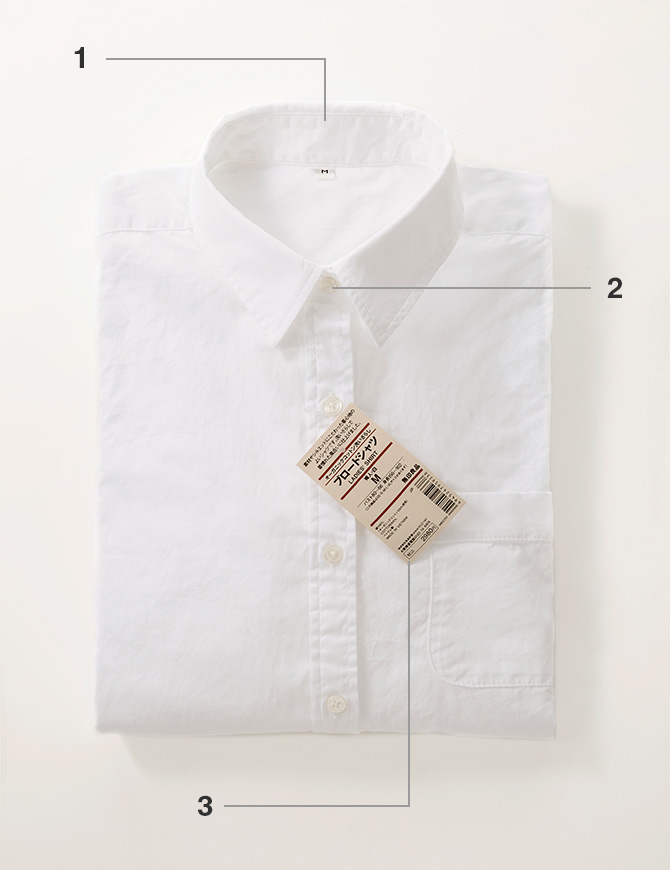Products and Services
Three Principles in Manufacturing
The fundamentals of MUJI's manufacturing process have not changed since its birth in 1980, as we continue to focus on the selection of materials, streamlining of processes, and simplification of packages to manufacture no-frills quality products. MUJI's product manufacturing aims to choose materials that take into account the global environment and producers, eliminate waste in all processes, and provide customers with what they truly need in the form they truly need it.

1 | Selection of Materials
Tasty and healthy foods. Comfortable clothing. Household goods that are, above all, easy to use. For Ryohin Keikaku, the materials we use to make such products are of the utmost importance; consequently, considerable attention is given to their selection. We search worldwide for the most suitable raw materials. We use many industrial materials as well as materials discarded by others because of their appearance - items that can be acquired in bulk at low cost. The overriding selection criteria is always quality. These activities underpin our ability to create low-priced, high-quality products.
Example 1 - OCHIWATA product series: we recycle the cotton fibre that dropped during combing process (ochiwata) into fabrics.
Example 2 - Hard pulp: we use recycled paper in our hard pulp storage goods.
Example 3 - Cut-off pieces of confectionery series: We collect cut-off pieces generated from the manufacturing process. The deliciousness does not change.
2 | Streamlining processes
The processes by which each product is manufactured are subjected to careful scrutiny at Muji. Processes that have no bearing on a product's quality such as sorting, sizing, and polishing are eliminated, leaving only these processes that are truly necessary. Even items that have been discarded because they do not meet certain standards of size and appperance are turned into products for sale. Focusing on true quality, Muji's manufacturing processes eliminate waste and reduce costs.
Example 1 - Unsorted sweets and snacks: We eliminate the process of sorting shape and size.
Example 2 - White porcelain tableware series: We reviewed standards such as dark spots and glaze flows, and reduced product disposal.
Example 3 - Uneven Baumkuchen: We make use of Baumkuchen that were repelled for reasons other than the taste, such as uneven baking, unevenness in size and deformation.
3 | Simplification of packaging
When packaging products, Ryohin Keikaku seeks not to adorn them but rather to highlight their natural colors and shapes. For this reason, we use bulk packaging and place products in plain, uniform containers. Faithful to our philosophy of simplicity, this approach is also in keeping with our policy of conserving resources and reducing waste. Thus, all Muji products appear on store shelves in simple packaging bearing only product-related information and a price tag.
Example 1 - Fabric products: Products are sold only with tags without using product packaging in order to eliminate waste of materials.
Example 2 - Retort series: By printing the necessary information on the retort pack itself as a product package, we do not use a extra package, thus avoid double packaging.
